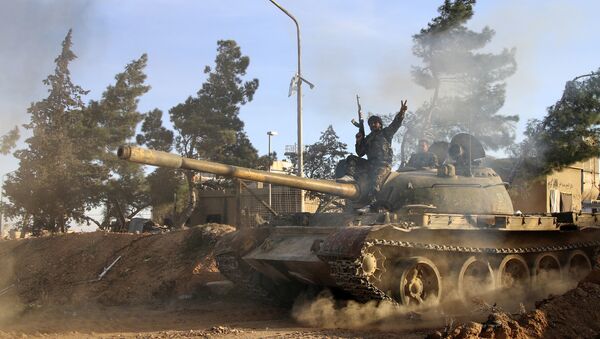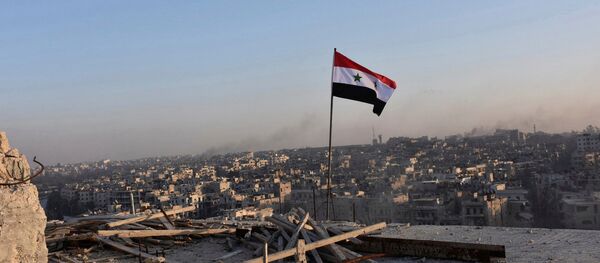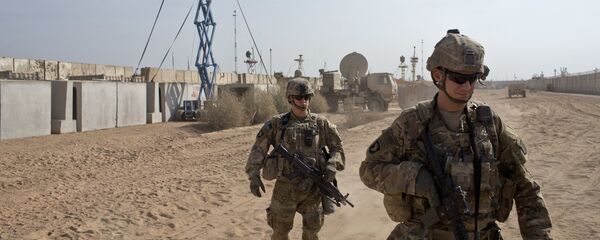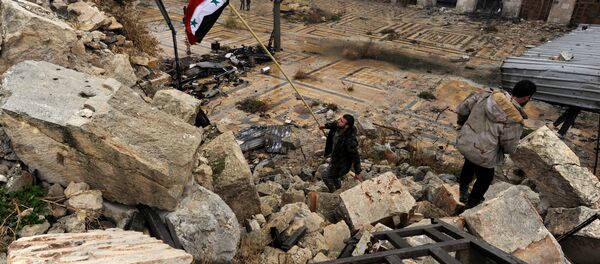As long as Daesh (ISIS/ISIL) maintains control over Raqqa, Europe will be subjected to terrorist attacks, Jean-Pierre Filiu, a professor of Middle East Studies at Sciences Po, Paris School of International Affairs (PSIA), underscores in his op-ed.
"As long as Raqqa stands as the operational command center for ISIL terror attacks, Europe will be struck again and again," Filiu writes for Politico.eu.
"Note that Brussels was hit by terrorists last March, leaving 32 dead, at a time when Belgium wasn't in any way active in the anti-ISIL coalition," he noted.
According to the French academic, the terrorists see Europe as "both a coveted pool of potential recruits and a dangerous counter-model of enduring coexistence."
"Terror attacks in Europe are intended to generate internal strife and societal tension in the hope of encouraging more young Muslim men (and more than a few women) to join the jihadist cause in Syria and Iraq," he underscores, naming France and Germany as the two main targets for Daesh.
According to the intelligence firm, Daesh has already demonstrated "a clear operational presence in Europe."
The report also envisions that the upcoming elections in Germany, France and the Netherlands will be "heavily influenced" by the "fear and threat" of terrorism with the ongoing refugee crisis fueling both.
Meanwhile, Swiss lawmakers have raised the alarm over the threat of Islamic radicalization and the possible influence of the Persian Gulf states on the country's mosques and Muslim organizations.
"We have no clue who is financing what. We don't know what money is coming in. There is no transparency," Doris Fiala, a member of the National Council and Vice-Chairperson of the Swiss delegation to PACE, told swissinfo.ch.
Speaking to Neue Zürcher Zeitung, Saida Keller-Messahli, the president of the Forum for a Progressive Islam, said that "huge sums of money" flow to Switzerland from Saudi Arabia, the United Arab Emirates, Qatar, Kuwait and Turkey to spread Wahhabi and Salafist teachings in Europe.
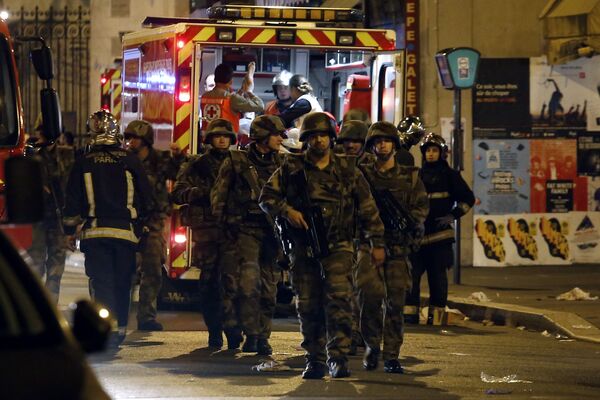
While Filiu is urging the US-led coalition to retake Raqqa from Daesh as soon as possible, Lieutenant General Stephen J. Townsend, commander of the coalition forces in Iraq, highlighted in his interview with The Daily Beast that it will take "two years of hard work" to expel the terrorist group from Raqqa and Mosul.
What about the Syrian Arab Army?
He even went so far as to claim that the SAA "liquidated the very forces that had driven ISIL [Daesh] from Aleppo as early as January 2014," apparently forgetting that these "forces" comprised the infamous al-Qaeda branch al-Nusra Front, its affiliates and collaborators.
In contrast, Boris Dolgov, a senior research fellow at the Institute for Eastern Studies of the Russian Academy of Sciences, underscores that the liberation of Aleppo has created an opportunity for the SAA to retake Idlib and Raqqa.
Speaking to RIA Novosti in mid-December, the expert suggested that the Syrian Arab Army will first have to regain control over Palmyra and then, possibly, will plan an offensive on Idlib and Raqqa.
Meanwhile, the foreign ministers of Russia, Turkey and Iran agreed last Tuesday that there is no military solution to the Syrian crisis and signaled their willingness to contribute to the peace process.
At the same time, Russian Foreign Minister Sergei Lavrov told journalists that Iran, Russia and Turkey reaffirmed "their determination to jointly fight the IS [Daesh] and al-Nusra [Front] and separate them from other armed opposition groups."
"I think the most effective format is the one you see now… To date, the format of the Russia-Iran-Turkey 'troika' has proven its relevance, at least in terms of practical deeds," Lavrov stressed.
